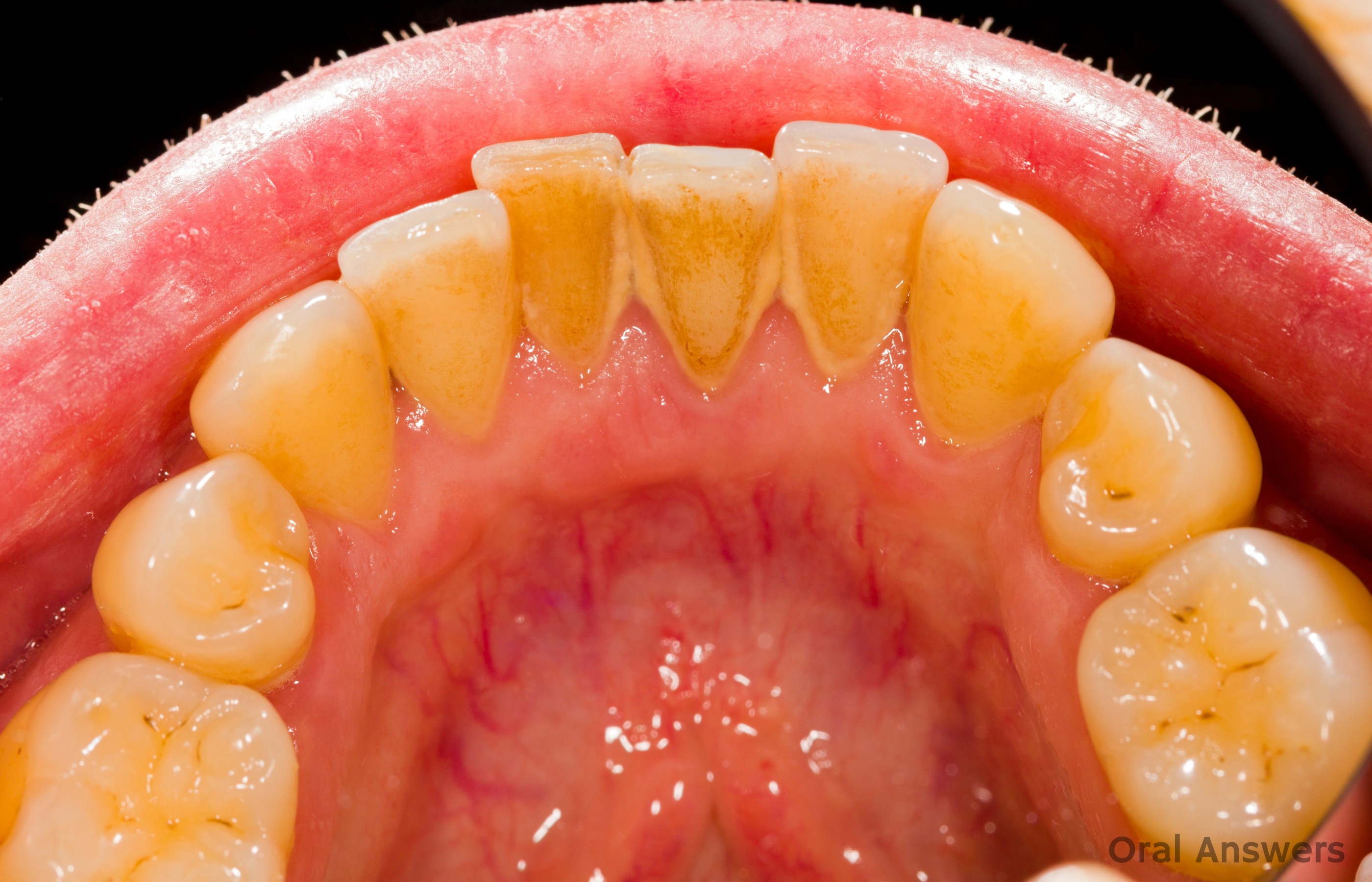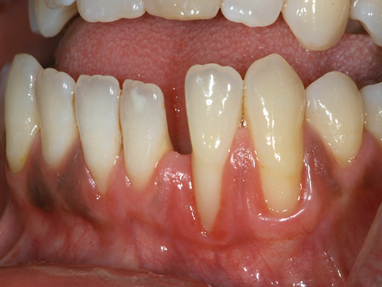

Ultrasonic tools or dental hand instruments can be used to treat calculus buildup. However, once created, calculus is too firmly adhered to be removed with a toothbrush.
.jpg)
Plaque from which the calculus forms can be eliminated with brushing and flossing. Bad breath, discoloration of the enamel, receding gums, and persistently swollen gingiva are just a few of the clinical signs of calculus formation. It severely affects the gum structure and unlike other milder dental diseases such as gingivitis, it cannot be reversed or cured with improved dental hygiene habits at home. Tartar or dental calculus, which is a severe case of hardening and calcified plaque, occurs when minerals in saliva and gums react with a bacterial plaque in the teeth. We are here to support your dental health every step of the way.Do you know how many bacteria reside inside your mouth? The answer is 6 billion, including 700 different species of them! Not all of them lead to health problems, and a lot of serious diseases and infections can be prevented by proper oral hygiene with the appropriate dental care products.īut what happens to the bacteria causing plaque around the enamel of the teeth over time? The plaque layers are getting thicker and they form dental calculus or tartar, which stains the teeth and creates openings or “pockets” under and above the gum line where bacteria can insert the bloodstream. Quality Preventive Dentistry Near MeĬontact Avalon Dental Care in the El Segundo and Carson areas to learn more about preventive care for long-term healthy smiles. Don’t forget to visit Avalon Dental Care for routine oral exams and cleanings every six months to help keep your smile healthy and prevent plaque related dental disease. While plaque continuously forms on the teeth, meticulous oral hygiene practices, including brushing and flossing, will help remove it and prevent it from hardening to tartar. How Can You Prevent Plaque and Tartar Buildup? So what’s behind that connection? While scientists can’t say for sure, many believe that bacteria in plaque and tartar enter the bloodstream, affecting major organs and exacerbating these health conditions. Studies show a connection between the bacteria behind gum disease and health problems, including heart disease, diabetes, stroke, respiratory conditions, dementia, rheumatoid arthritis, premature birth, to name a few. How Does Plaque and Tartar Buildup Affect Your Overall Health? The bacteria destroy the underlying bone and tissue supporting the teeth, potentially leading to tooth loss. The gum tissue begins pulling away from the teeth, leaving spaces called pockets that trap bacteria, tartar, and food debris. If not treated, the condition can progress to periodontitis. Gingivitis, the earliest stage of gum disease, is characterized by swollen, tender, and bleeding gums. The accumulation of plaque bacteria can also cause inflammation of the gums, which leads to periodontal (gum) disease. Plaque and tartar house bacteria that produce acids that eat away and break down tooth enamel, resulting in tooth decay and cavities. How Does Plaque and Tartar Buildup Affect Your Oral Health?
#Severe calculus buildup in mouth professional
If not removed, the plaque starts reacting to the minerals in the saliva and hardens to tartar, which only a dental professional can remove. Plaque, a sticky, colorless film containing bacteria, continuously builds up on the tooth surfaces.

You can always count on us for care that exceeds your expectations. Your trusted team at Avalon Dental Care is proud to offer quality preventive dentistry procedures designed to keep your smile in tip-top shape. It can also have a detrimental effect on your overall health. Plaque and tartar buildup affects more than your oral health.


 0 kommentar(er)
0 kommentar(er)
